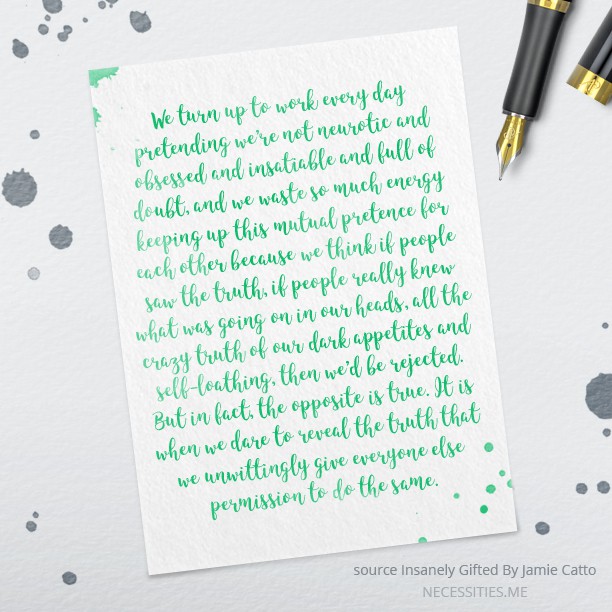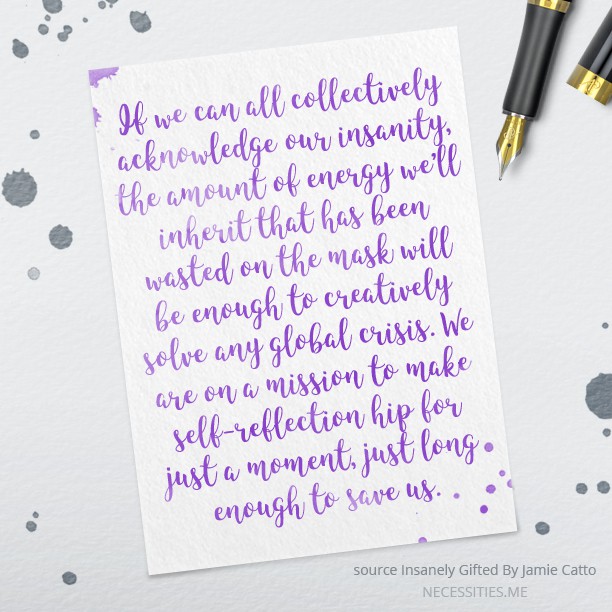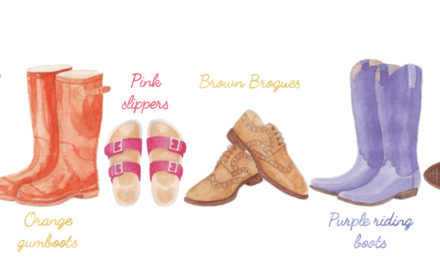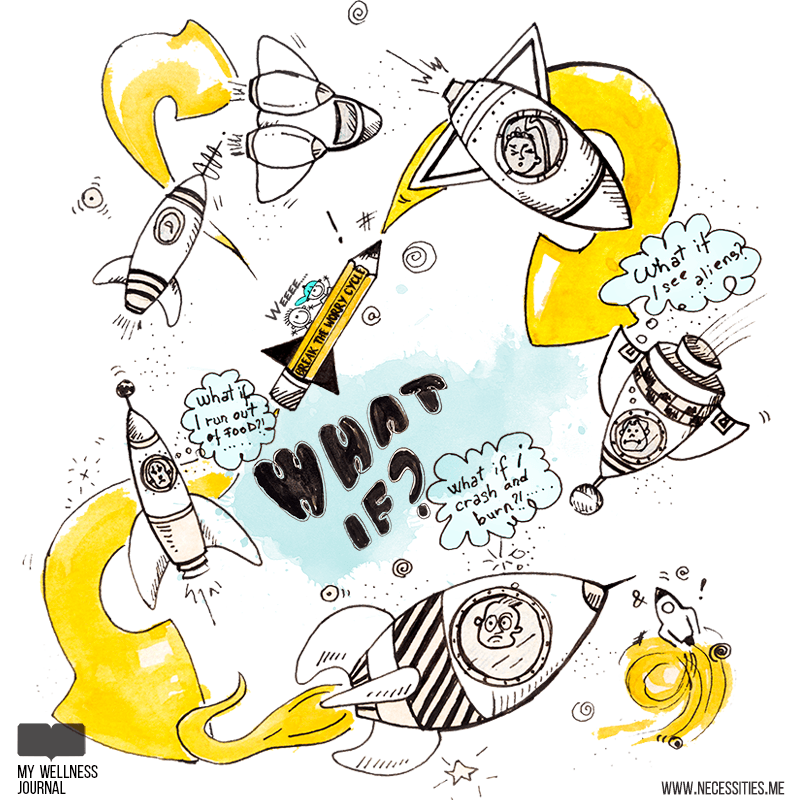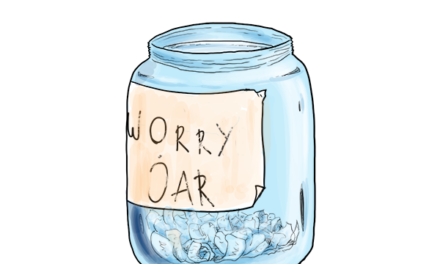How to embrace the wisdom of healing
With a fence constructed for safety, this location has become a popular spot for lovers to declare their undying love by affixing a love lock to the fence and tossing the key into the ocean. Heart-achingly, one of these love locks is a tribute from the friends and family of a man who came here to end his life.
Imagine seeing the vibrancy of a clear blue sky for the very last time or never again feeling the comforting touch of a loved one. Life is precious. Though sadly, some people find it too difficult to carry on. I had several questions that day about the challenges that take us over the edge. I found some answers in a book, Insanely Gifted by Jamie Catto.
In his teens, Jamie suffered from chronic panic attacks. Shaking, vomiting and collapsing into a foetus-like state were daily occurrences for him. Unable to go on any longer, Jamie shared his thoughts of suicide with his mother. At the time, his mother had become involved with an Australian self-development course run by a brilliant facilitator, Graham Browne[i]. She had encouraged Jamie to participate, but he had resisted. On this occasion however, she proposed an idea. As the course was being run that coming weekend, she asked him to attend it and if things hadn’t shifted by Monday then he could go ahead with his plan. That day became the first step in what Jamie refers to as ‘a great treasure hunt’.
The weekend introduced him to a concept of acceptance he hadn’t known before. He realised “many of us hide our true faces behind masks of appropriateness and how much shame and embarrassment we feel for the uniquely beautiful, eccentric, and wounded individuals we are.”
Through his work on self-healing, coaching, music and film-making, Jamie found his mission; to create “a legion of like-minded souls who, just by being themselves, present, authentic, often vulnerable, become catalysts for everyone who comes into contact with them”.
This book deeply resonated with me – its focus is on solving life’s problems from the inside out. If you are undergoing a difficult time or like me feel a shared sense of humanity in our common suffering please, I highly recommend you read this book.
Life can be incredibly painful at times. Through our painful experiences, we often gain incredible gifts of wisdom and insight. As we heal, we begin to become deeply aware of our reality. The learning in this experience often allows us to make new connections and deepen existing ones or clear our lives of what no longer serves us. Let me walk you through some scenarios and see what resonates. What can you heal or let go of?
Approval addiction
Beginning as children and sometimes throughout life people are rewarded for behaving ‘appropriately’ only to have privileges withheld when they failed to act a certain way. As a result, we shut off those parts of ourselves we were taught were ‘bad’ and ‘unwelcome’. The true version of our self becomes edited by our external environment. We learn to abandon our authentic self which makes true intimacy really difficult. When we are real, we soften. As Jamie says “when I am more visible in who I am, I become a walking permission slip for you to lighten up about your own edges”. When we begin removing our mask (layer by little layer), we begin to see who really loves us unconditionally–they are the people you want around you.
Suffering for love
Jamie reiterates that we do not need to suffer for love. He suggests we make a list of our suffering strategies (ranting, complaining, sulking, etc.) and when we ask for help, check in with yourself to see what’s really going on. Is the story or behaviour playing out so you can have an unidentified need met by someone in some way? Do you react defensively or angrily if this ‘need’ hasn’t been tended to by that person? Whether you’re aware of it or not, this is a subtle form of manipulation. The ‘shaming’ reaction is also a form of aggression. Once you become aware of your suffering for love strategies, you can begin to identify when they’re happening and then let them go. Jamie believes this is essential to leading creative and intimate lives.
Self-love
Since moving through his experience, Jamie has been able to identify that “self-love begins with the willingness to feel all our feelings without rejecting our own experience”. This willingness to feel helps us to dissolve any emotions and underlying belief systems that no longer serve us. Jamie writes about an incident when he was sixteen and experienced a severe panic attack where he burst into tears in the waiting room of a hospital. Soon after he noticed the panic attack symptoms had disappeared. Now he cries when he needs to and allows himself to feel all his feelings. To break from the repetitive loops of self-sabotage we need to tend to ourselves with love and acceptance; not condemnation. Self-care is the path to sustainable happiness and contentment.
Like me
A practice he refers to as “joyously announcing one’s fallibility at every opportunity,” Jamie suggests that for one day we practice the habit of adding the words “like me” to the end of any sentence whenever we say anything (good or bad) about anyone. This practice dissolves false separations and creates space for everyone to be their perfectly flawed selves without feeling the need to live in hiding. Here is an example: She’s hard working, but such an attention seeker…just like me!
Make a list of primary bad guys living in your head
Jamie believes we all have different ‘characters’ living in our heads. Instead of judging or dismissing the thoughts they come up with, he suggests the opposite. Give them some airtime! He thinks of it as a mini group therapy session. Start by checking in to see who’s on the list today. And who is in the driving seat? Then ask them, what they need. Quite often our intuitive response will rise to the surface, allowing you to take the role of responsible adult and say some gentle affirmations to it. Jamie has identified nine main players in his life. (I’m sure you’ll find some common ground):
- The pessimistic worrier
- The to-do list addict
- The innocent victim
- The strategizing control freak
- The vengeful murderer
- The slave driver/inner critic
- The naïve child
- The needy one
- The flaming sex maniac
Examine your relationship with the word SHOULD
It’s no secret we live in a fast paced society. There will ALWAYS be something to do. In his book, Jamie recognises how ‘should’ thoughts are often rooted in a deep sense of lack. What if whatever you were doing today was enough? We can’t do everything; we never WILL be able to. Give yourself permission to stop trying. I discovered how much this mode of thinking negatively influences the way I treat myself AND the amount of joy and peace I think I deserve. One of my favourite quotes from the book is: “I believe that enlightenment (if it exists) is loving myself exactly as the wounded, freaky creature that I am today. The highest spiritual path that I can attain is to accept myself as I am, with no agendas and finish lines”. This doesn’t mean we stop being excited about growing; rather we become mindful and accepting of where we are today.
Fear of abandonment
Jamie writes “when I hand over the job of making me feel good about myself and emotionally safe to another person, I set myself up to live in constant fear of abandonment”. When we place this burden on another person and our feelings aren’t reciprocated or responded to in the way we are hoping, it diminishes our sense of being okay. It impacts on our relationship dynamics and sets the foundation for co-dependency. We need to be able to cultivate a sense of being okay without the constant reassurance from others. When I feel myself on shaky grounds, I have found that pausing and centring by going inwards helps me to find stability. Take time to inquire within, what is one thing you can do to find grounding and stability.
Take stock of who’s around you
Reflect on how the people in your life affect you and minimise your exposure to toxic energy. We can’t always cut the toxic people out of our lives, but we can stop engaging with them. Fighting and disagreeing with people who criticise us can be incredibly taxing. It triggers our sympathetic nervous system, releases adrenalin into our bodies and damages relationships. If someone criticises you or something you’re doing, simply say “thank you for your opinion” and try changing the subject. You aren’t required to defend yourself. For more information on this, check out the book Awareness.
How we treat ourselves matters
We might have the best intentions but many times we will fail. Jamie describes it as “riding a rodeo horse covered in Vaseline”. Instead of agonising over reality and criticising our failed experiences, Jamie suggests we cultivate a sense of humour. How we talk to ourselves when we experience failure is an important part of growth as well as self-care. “Looking after our own fragility” is our responsibility. Instead of going out with all guns blazing take responsibility for yourself and avoid burnout. Bruce Frantzis is a Taoist educator who teaches the Taoist principle called the 70% rule. This means “whatever we are doing, whether training physically, mentally or spiritually, we should never use more than 70% effort. Pushing ourselves too hard in the name of faster achievement results in injuries, breakdowns and burnouts”.
Shared human experience
When facing challenges we often tend to feel isolated and alone. Thinking about or reaching out to other people undergoing similar difficulties can help us to feel connected and less overwhelmed. Personally my to-do list as a start-up founder can get overwhelming. For me, knowing there are people out there who are creating and succeeding in spite of uncertainty is comforting.
Release the burden of success
The fear of success is more common in women than men; however men aren’t immune to it. Jamie’s book helps to reframe any fear or uncertainty you may be having around success: “never put the burden of it doing well or being successful on the shoulders of a piece of art or a mission. It is a mystery how our projects are going to turn out and whether anyone will like them. That cannot be the ultimate motivation. Only loving what we are doing while we are doing it will imbue the work with something authentic and heartfelt that will touch those who are exposed to it when it is done”.
Journaling Tip
Clear some time from your schedule and create your own ‘Manifesto for Life’. Refer to the images here for inspiration.
To read more about these and other great tips for living, Insanely Gifted can be found at Amazon, Book Depository and most great bookstores. Some other resources you may like include Inner Smile Meditation, Full Body Listening, and Organ Meditation. And don’t forget to let us know what you think!
[i] This course was called ‘Turning Point’, facilitated by Graham Browne. Graham passed away in 2012. Here is a beautiful article commemorating his life, written by one of the people he helped. http://www.johnglostersmith.com/in-memory-of-a-very-special-person/
Words To Grow By
Jamie Catto
“Many of us hide our true faces behind masks of appropriateness and how much shame and embarrassment we feel for the uniquely beautiful, eccentric, and wounded individuals we are.”


